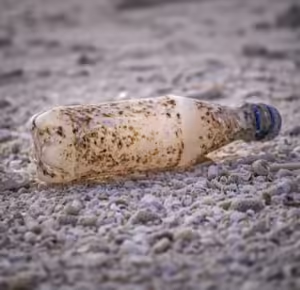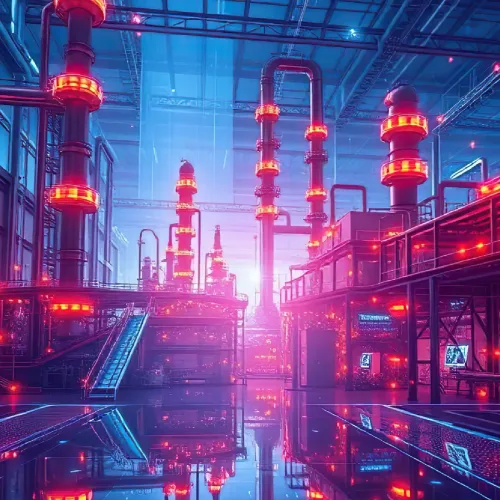Plastic pollution feels like a never-ending story. We see it piling up everywhere around us, from landfills to oceans. This is a problem that just does not go away. Recycling helps a little. However, traditional waste methods cannot handle the mountains of plastic we produce each year. However, scientists are trying a new and exciting solution. It’s called engineered microbes. These microbes can break down plastic safely and quickly. Could these microbes, which eat plastic, be our next big step toward a cleaner planet?
It persists for centuries. Some of the plastics we use can take hundreds of years to decompose. We’re creating and discarding them faster than we can manage. Every year, they contribute millions of tons of plastic to land and oceans. These plastics are laced with harm and toxins. Traditional waste management, such as landfills and limited recycling, can’t keep up. Scientists are looking to these engineered microorganisms to fill the gap.
How Engineered Microbes Work?
Microorganisms are nature’s recyclers. They break down dead plants, food, or other natural debris. But plastics? That is a different story. Plastic is a synthetic material with strong bonds, and most microorganisms can not digest it. The scientists are teaching microorganisms to eat plastic by modifying their DNA at the genetic level. These plastic-eating microorganisms make the enzymes needed. They break down plastic into simpler and mostly natural compounds.
Here is a quick look at the benefits of these engineered microorganisms compared to traditional methods:
| Waste Solution | Pros | Cons |
|---|---|---|
| Traditional Recycling | Reduces plastic buildup | Limited plastic types, requires high energy |
| Landfills | Quick and cost-effective | Long-term pollution, massive space requirements |
| Engineered Microbes | Eco-friendly, adaptable, efficient | Currently costly, needs scaling |
This table shows that the engineered microbes stand out in this table. Traditional recycling is limited to specific types of plastic. However, microbes are actually capable of recycling a wide variety of plastic polymers. This makes the process more flexible and in many ways more environmentally friendly.
Bringing Engineered Microbes to the World

Although these microorganisms have great potential, scaling up their use is not easy. We have questions about cost, where such things would be produced, and how they can be used safely. But they also will ensure that, released outside controlled laboratories, these microorganisms don’t do any harm to natural ecosystems. They will need a lot of testing to work on a large scale, and it is still expensive. With further research, however, these obstacles can eventually be overcome.
Labs around the world are already experimenting with engineered microbes to break down plastics. In Japan, researchers have identified a bacterium, Ideonella sakaiensis, that naturally digests PET (used in water bottles). They are working on making it more effective at handling large volumes of plastic waste.
In Europe, biotech companies are exploring other microbes to break down different plastic types, such as polyurethane. With more investment, these efforts could soon help tackle the world’s plastic problem.
As Neil deGrasse Tyson famously said, “The great thing about science is that it’s true regardless of whether you believe it or not.”
Science is helping us find real solutions, even to huge challenges like plastic waste.
Future of Plastic Waste Management
In the future, engineered microbes could be a routine technology in waste management facilities around the globe. These microbes are not a quick fix, but part of a continuing system for treating plastic waste. Scientists are exploring how these microbes can be used beyond just plastic. They may potentially help with other kinds of waste. This research brings us closer to a cleaner, more sustainable world.
Conclusion
On many levels, plastic pollution is affecting our planet, and engineered microbes are a promising way forward. They are not a magic solution, but it is an exciting step that could make a difference. These microbes evolve constantly. They could make a solution that takes plastic waste out of the issue category. This waste could become a manageable part of a healthy ecosystem.




1 Comment
Good day I am so happy I found your site, I really found you by error, while I was browsing on Google for something else, Anyhow I am here now and would just like to say thank you for a incredible post and a all round enjoyable blog (I also love the theme/design), I don’t have time to browse it all at the minute but I have book-marked it and also included your RSS feeds, so when I have time I will be back to read more, Please do keep up the excellent work.